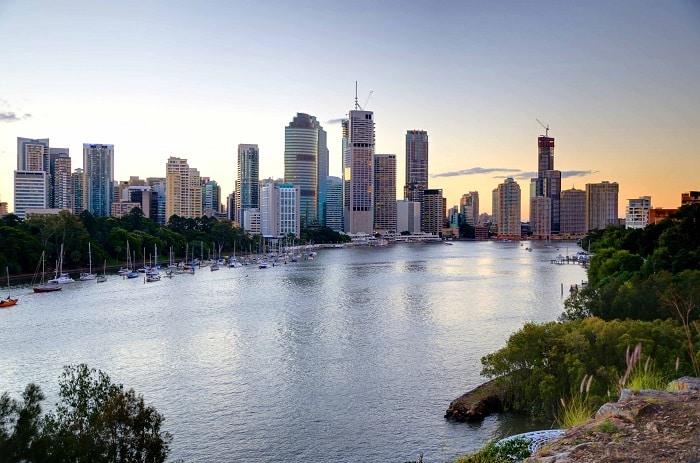Traveling between the U.S. and Australia pose a unique set of considerations and questions. From tackling time zone differences to understanding entry requirements, there’s much to ponder. This guide with us aims to address these concerns, providing essential travel tips for an impeccable journey with a peaceful mind. Particularly noteworthy is Atlanta Airport’s Private Terminal for VIP Passengers, a haven for luxury travelers seeking convenience and exclusivity, especially amidst the chaos of being one of the busiest airports. All types of travelers including both seasoned and first-timers will benefit from our thoughtfully designed travel tips between these two countries. Additionally, the guide will show you how airssist facilitates a luxurious travel experience by acting as your safe zone in both countries which will offer comfort and efficiency throughout the journey. Let’s get started!
Must-Know Travel Tips when Traveling between the U.S and Australia
1. Verify Passport Expiry Dates to Avoid Travel Delays.
It’s essential to check passport expiry dates well in advance of travel to avoid delays. Passports, including children’s, may expire sooner than expected, necessitating early renewal planning. With the Australian system returning to standard processing times, it’s advisable to verify passport validity early on. Additionally, confirming the passport requirements of the Australian airport you’ll be flying into, such as Sydney Kingsford Smith International Airport, can facilitate smooth entry into the country.
Note: Before booking travel, ensure your passport is in good condition, won’t expire soon, and has at least four blank visa pages. (as per the news announcement of Australian Government)
2. Carry Hard Copies of Essential Documents with You at All Times.
Carrying hard copies of essential travel documents such as passports and visas is a proactive measure to mitigate the inconvenience and stress that can arise from unforeseen circumstances like lost luggage or stolen items. In the event of a passport loss, having duplicate visas on hand can significantly streamline the process of obtaining replacements, particularly when faced with the challenge of securing consulate appointments abroad, which can often be booked out for months in advance. This precaution ensures that you can face potential travel disruptions with ease if you have not booked for an airport concierge service that helps passengers and continue your journey without unnecessary delays or complications.
3. Maintain Written Records of Important Contact Numbers.
Maintaining written records of essential contact numbers is a simple yet indispensable practice for travelers. Anecdotes like the one shared highlight the potential pitfalls of relying solely on digital devices, especially in moments of forgetfulness or technical mishaps. By having key phone numbers written down and easily accessible, travelers can be prepared for unexpected situations with greater ease and efficiency. This practice not only ensures connectivity in emergencies but also serves as a valuable backup plan and an important tip during solo travel adventures, where self-reliance is paramount. Overall, it’s a small but impactful step towards enhancing preparedness and peace of mind while exploring the world.
4. Review Your I-94 Entry Record for Accuracy.
Reviewing your I-94 entry record is crucial when traveling to the U.S. This document holds significant importance as it determines the validity of your stay in the country, regardless of your visa type. Each time you enter the U.S., a new I-94 entry record is issued, which may differ from your previous entries. It’s essential to verify the accuracy of this record, as it specifies the duration of your stay permitted by immigration authorities. While visas such as ESTA or E-3 may grant entry, the I-94 ultimately governs your lawful presence in the U.S. Consulting this record online or through legal assistance ensures compliance with immigration regulations and avoids any discrepancies that may arise during your stay.
5. Monitor Expiry Dates for Partner Visas if Applicable in Australia.
Keeping track of the expiry dates for partner visas is vital for individuals residing in Australia with foreign partners. Regardless of the stage of visa processing, it’s imperative to monitor the five-year validity period closely. As this deadline approaches, taking proactive steps becomes crucial to ensure uninterrupted residency status. Failure to renew the partner visa before expiry could lead to complications when returning to Australia. Therefore, staying vigilant about these dates is essential to maintain legal status and facilitate exquisite travel arrangements.
6. Anticipate Potential Flight Changes or Travel Disruptions.
Prepare for any potential flight changes and disruptions, common in both the U.S. and Australia, by incorporating contingency plans into your travel preparations. This may involve budgeting extra time and funds for unexpected situations like accommodation needs. Considering that certain delays may not be covered by travel insurance, having backup plans is essential. Additionally, being aware of tips to optimize layovers can truly add value to your travel experience. Overall, flexibility and preparedness are key to mitigating the impact of disruptions and ensuring a smoother journey.
7. Allow Extra Time for Security Procedures, Especially at Busy Airports.
Allow extra time for security procedures at busy airports, as lines managed by TSA, CBP, and Australian Customs and Border Force can be lengthy. Consider exploring and learning everything you need to know about fast tracking services at airports to expedite the process before your journey. Be patient and prepared for longer wait times, especially at immigration and during check-in, and bring snacks and entertainment to stay occupied. Stay updated with information from relevant authority websites close to your travel date.
8. Familiarize Yourself with the Specific Challenges of Los Angeles Airport (LAX)
Prepare for the specific challenges of Los Angeles Airport (LAX), known for its sprawling layout and congestion. Allocate extra time for walking between terminals and baggage collection, especially if traveling with elderly or young companions. Despite the airport’s complexity, the international terminal offers a quieter atmosphere, particularly for late-night flights to Australia.
Travel Safe between the U.S and Australia with airssist’s Guidance
From meet and greet services to VIP terminals, limo transfers, and private tours during layovers, airssist offers comprehensive assistance to enhance your travel experience between the U.S and Australia. Benefit from luggage porters, fast track services, VIP lounge access and group transfers in luxurious limos. Additionally, access wheelchair assistance, minor accompanying services, and pet assistance for added convenience and peace of mind throughout your journey.

